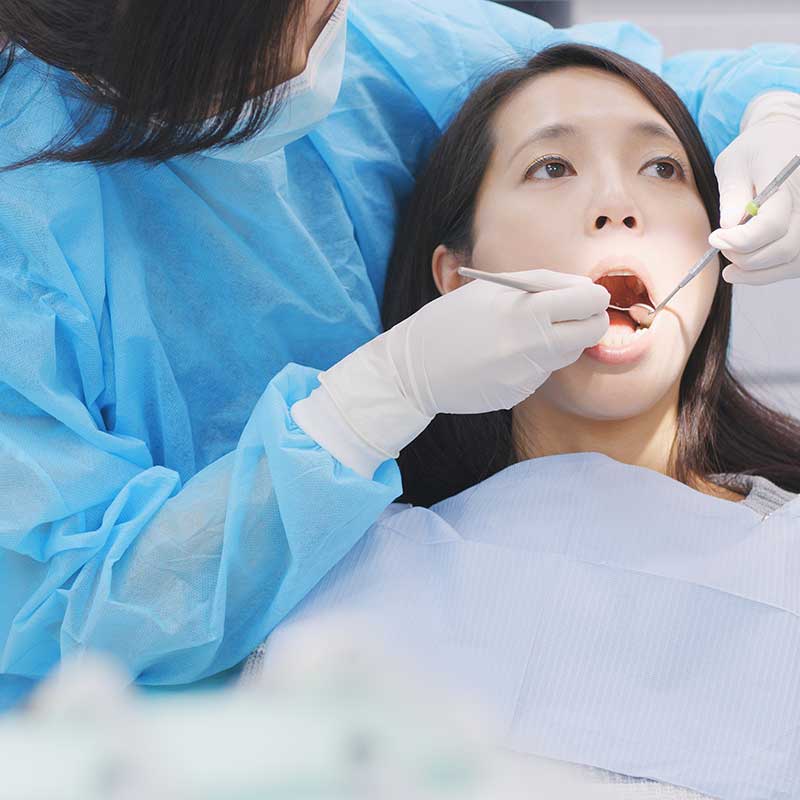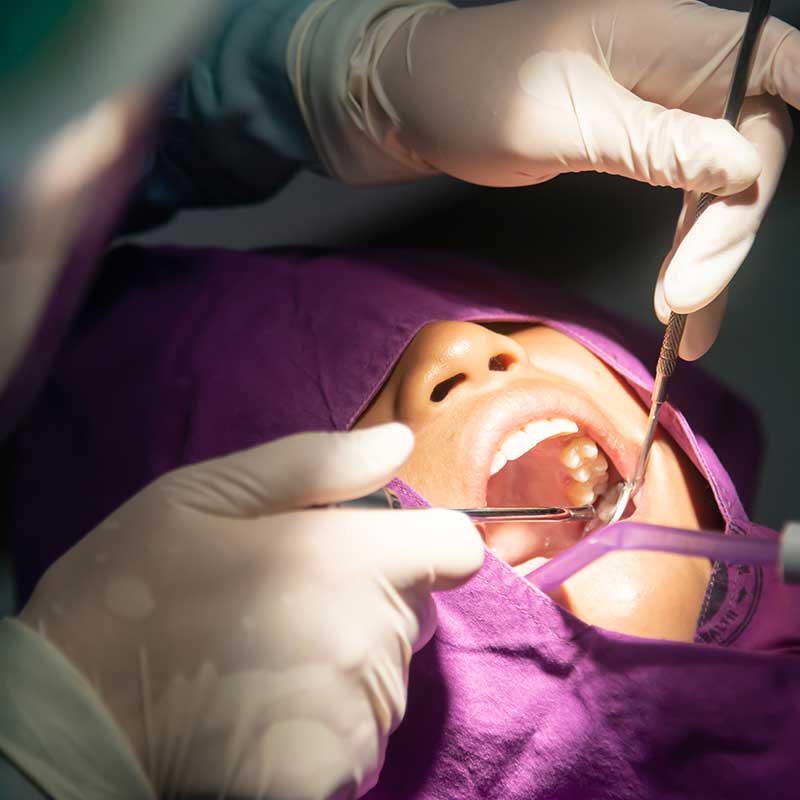Emergency Dentistry
Dental-related accidents can be scary and uncomfortable. We’re experienced in dealing with complex dental emergency procedures.
Dental emergencies require urgent attention from a dental or medical professional, even if they happen at inconvenient times.
How do you know you’re having a dental emergency?
- Teeth have been injured in an accident
- Bleeding from your mouth is continuous
- Swelling in the mouth or lower face
- Severe pain
Please note: some situations can be life-threatening and require a visit to the hospital emergency department before doing anything else.
- Jaw fractures or dislocations
- Severe cuts to the face and mouth
- Skull injuries
- An extremely infected tooth abscess
- Difficulties breathing or swallowing
Common dental emergencies that require an urgent visit to the dentist:
- Intense tooth pain
- Bleeding gums or teeth
- Mouth sores
- Broken or chipped teeth
- Tooth has been loosened or knocked out
- Fractured crown or filling
- Broken orthodontic appliances (such as braces)
- Tooth abscess (serious oral infection)
- Ongoing and persistent bleeding and pain after dental procedure
Why is it crucial to book a dental appointment as soon as possible?
If you’re unsure about whether or not you need an emergency appointment, call your dentist and explain what you’re experiencing They will let you know if you should come in right away, or what you can do while you wait for your next appointment.
It’s usually best to see an emergency dentist within the hour, however this isn’t always possible or necessary. In such cases, there are certain steps you can take to minimise damage.
What to do while waiting for your dental appointment:
Extreme toothache:
Knocked out tooth:
- Pick the tooth up carefully by the white part (crown)
- Don’t touch the root of the tooth
- Rinse the tooth under cold water for 10 seconds
- Gently push the tooth back into the socket, if you can (don’t force it).
- If that doesn’t work, place the tooth in milk and transport it to the dentist
- Alternatively: hold the tooth securely between your gum and cheek as you go to the dentist (don’t accidentally swallow it)
- Another option: cover the tooth in saliva and place it in plastic wrap
Stuck object:
Cracked tooth:
Bleeding from the mouth (lips or gums):
Tooth abscess or gum infection:
Damaged braces or wires:
We’re experienced in dealing with complex dental emergencies….
We understand how stressful and frightening it can be when someone in your family experiences dental trauma. Our dentists make time to treat emergencies, and we empower our patients by walking them through the treatment options and associated costs.
Are you unsure whether you’re experiencing a dental emergency? Call us on (02) 9489 2928 to book an appointment or to get advice on what to do next.



